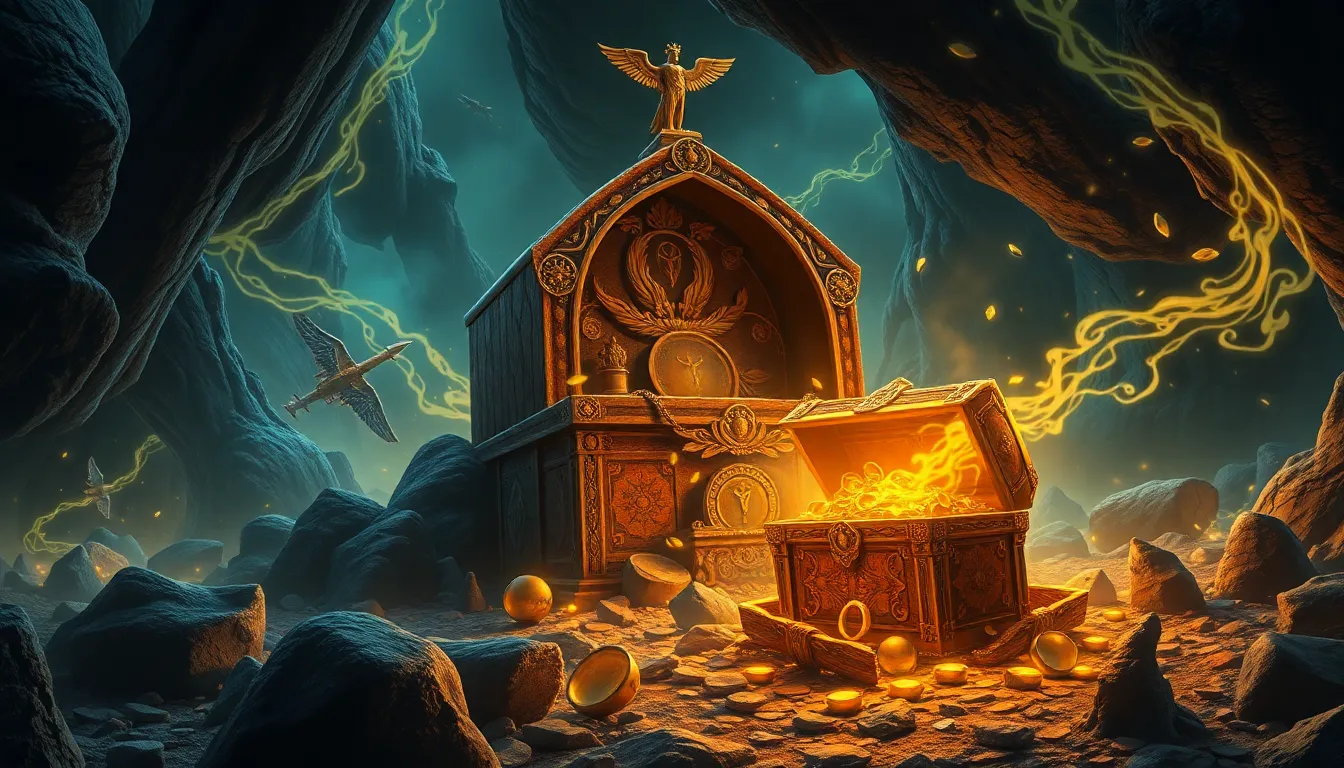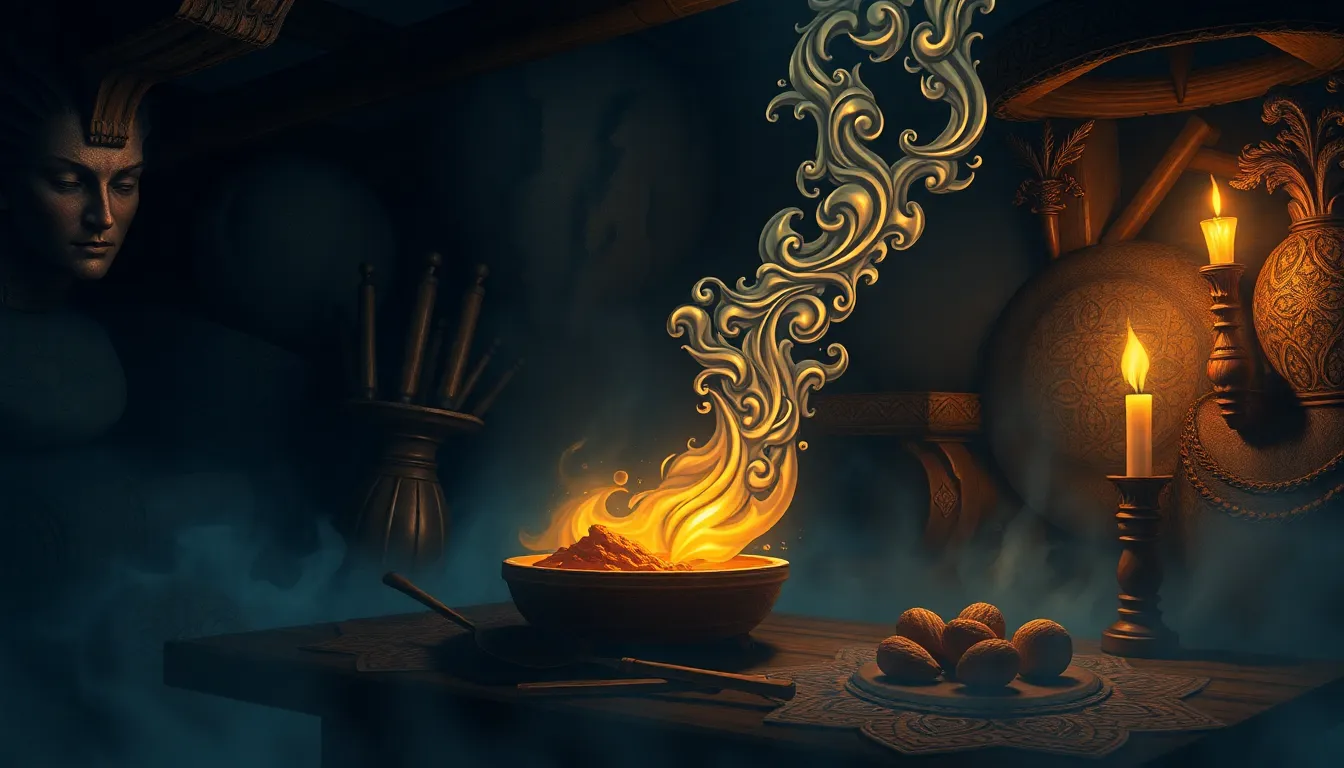The Mythic Quests of the Mind: Psychological Legends
I. Introduction to Psychological Mythology
Psychological legends, often rooted in ancient mythology, serve as powerful narratives that help us understand the complexities of the human mind. These legends encapsulate universal themes and archetypes that resonate across cultures and eras. By exploring these myths, we can gain profound insights into our behaviors, motivations, and emotional struggles.
The importance of mythology in psychology cannot be overstated. Myths provide a framework for understanding not just personal experiences but also collective human experiences. They allow individuals to navigate their inner worlds, providing meaning and context to their psychological journeys.
This article will delve into the intricate relationship between psychology and mythology, illustrating how these stories shape our understanding of ourselves and our interactions with others.
II. The Archetypes of the Mind: Carl Jung’s Influence
Carl Jung, a renowned Swiss psychiatrist, introduced the concept of archetypes as fundamental components of the collective unconscious. These archetypes are innate tendencies that shape our perceptions, behaviors, and experiences.
The collective unconscious, according to Jung, is a reservoir of shared memories and archetypes that transcend individual experiences. Some of the primary archetypes include:
- The Hero
- The Mother
- The Wise Old Man
- The Shadow
Modern psychology often draws on these archetypes to analyze behaviors and motivations. For instance, the Hero archetype can be seen in individuals who strive to overcome adversity, while the Shadow represents the darker aspects of the self that one must confront to achieve personal growth.
Case studies highlight how recognizing these archetypes can lead to transformative insights in therapy, providing individuals with a deeper understanding of their struggles and aspirations.
III. The Hero’s Journey: A Psychological Framework
Joseph Campbell’s concept of the monomyth, or the Hero’s Journey, outlines a universal narrative structure found in myths across cultures. This framework is not just a storytelling device but a reflection of the psychological growth process.
The stages of the Hero’s Journey include:
- Call to Adventure
- Refusal of the Call
- Meeting the Mentor
- Crossing the Threshold
- Trials and Challenges
- Return with the Elixir
These stages mirror personal development, where individuals confront challenges, seek guidance, and ultimately undergo transformation. For example, someone struggling with anxiety may experience a ‘Call to Adventure’ when they decide to seek therapy, leading them through trials that culminate in personal growth and resilience.
IV. Myths and Mental Health: Exploring Common Narratives
Myths play a crucial role in understanding mental health struggles. They provide narratives that can help individuals articulate their experiences and find community in shared stories.
Cultural myths surrounding mental illness often shape societal perceptions and stigmas. For example:
- The “mad artist” myth suggests that creativity is inherently linked to mental illness.
- The “suffering hero” myth portrays individuals overcoming adversity as noble, but can also romanticize struggles.
Transformative stories of recovery often mirror mythic narratives, where individuals emerge stronger after facing their personal demons. These stories serve as beacons of hope and resilience, encouraging others to embark on their own quests for healing.
V. The Shadow Self: Embracing the Dark Side
The concept of the Shadow, introduced by Jung, represents the unconscious aspects of the self that one often rejects. Embracing the Shadow is crucial for personal growth and self-acceptance.
Myths illustrating the battle with the Shadow, such as the tale of Dr. Jekyll and Mr. Hyde, highlight the internal conflicts individuals face. These narratives remind us that acknowledging and integrating our darker aspects can lead to greater self-awareness and authenticity.
Techniques for integrating the Shadow into personal growth include:
- Journaling to explore hidden emotions
- Therapeutic dialogue to confront fears
- Mindfulness practices to cultivate self-awareness
VI. The Trickster Archetype: Chaos and Creativity
The Trickster is a common figure in mythologies worldwide, embodying chaos, creativity, and transformation. This archetype challenges norms and inspires innovation.
Psychologically, the Trickster represents the balance between order and chaos. Embracing this archetype can lead to breakthroughs in creativity and problem-solving. The Trickster reminds us that disruption can foster growth and new perspectives.
By integrating the Trickster’s qualities, individuals can cultivate flexibility, adaptability, and innovative thinking in their personal and professional lives.
VII. Mythic Themes in Modern Therapy Practices
Narrative therapy emphasizes the power of storytelling in healing. By reframing personal narratives through a mythic lens, individuals can gain new insights and perspectives on their lives.
Myth-informed approaches in cognitive-behavioral therapy (CBT) leverage archetypal stories to help clients understand their struggles. For example, using the Hero’s Journey framework can guide clients through their personal quests for change.
Case studies showcase therapeutic success through mythic frameworks, illustrating how clients have transformed their narratives and, in turn, their lives.
VIII. Cultural Variations: Myths Across Different Societies
A comparative analysis of mythic quests reveals the rich diversity of psychological narratives across cultures. While the details may vary, many myths share universal themes of struggle, transformation, and redemption.
Cultural context shapes these psychological narratives. For instance, indigenous myths often emphasize harmony with nature, while modern Western myths may focus on individualism and personal success. Understanding these cultural variations enhances our appreciation of the human experience.
IX. The Future of Psychological Myths: New Narratives for Contemporary Challenges
As society evolves, so do our psychological myths. The digital age has birthed new narratives that address contemporary challenges, such as the impact of technology on mental health and the rise of social media.
Emerging psychological myths explore issues like identity, connection, and disconnection in a hyper-connected world. These narratives can guide individuals in navigating the complexities of modern life.
X. Conclusion: The Continuing Quest for Understanding the Mind
The exploration of psychological legends offers valuable insights into the human experience. By understanding and integrating these myths, we can embark on our own quests for healing and self-discovery.
Mythology serves not only as a tool for personal reflection but also as a means of collective healing. As we continue to explore our own mythic quests, we can create new narratives that resonate with future generations.
Readers are encouraged to delve into their own stories, embracing the mythic elements of their lives as a pathway to understanding and growth.



